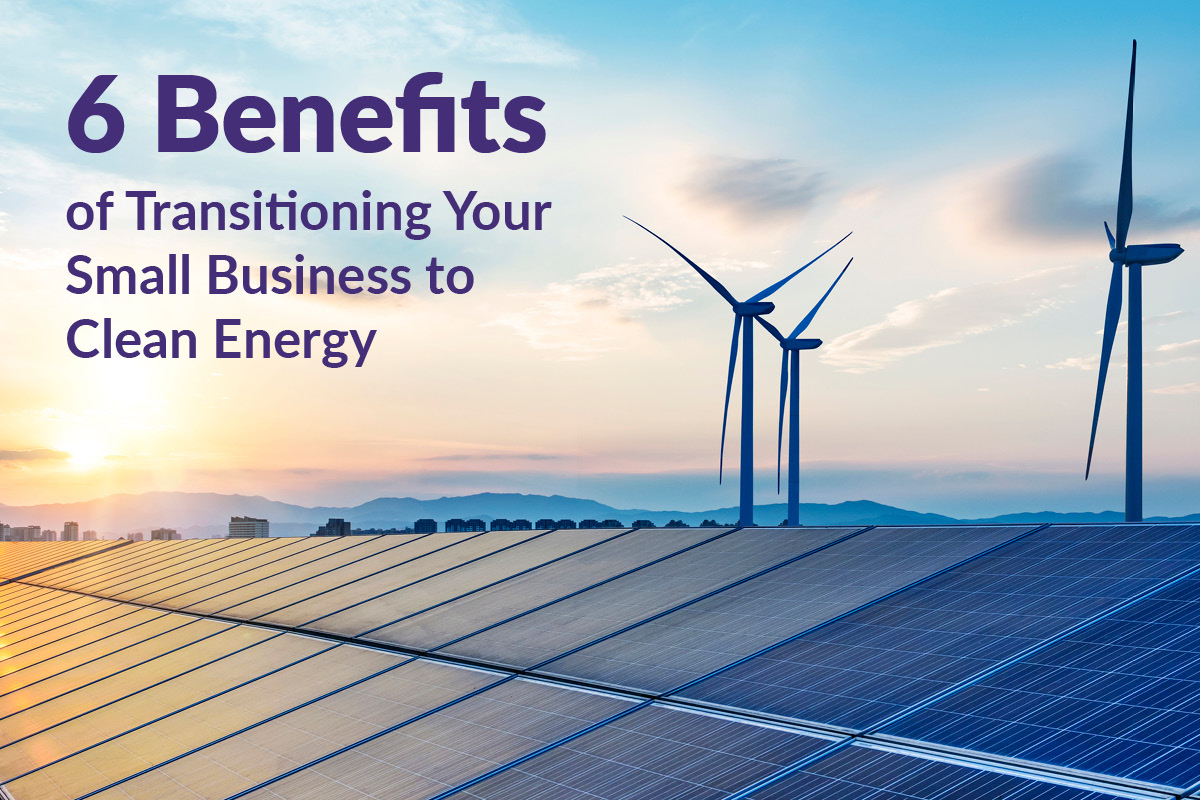There’s one shift in the world of business that has become crucial to embrace: clean energy is the future. According to the Office of Energy Efficiency and Renewable Energy in the Department of Energy, renewable energy generates over 20% of all U.S. electricity. Your small business can be a part of the movement to increase that percentage and protect the planet by making the clean energy transition.
Business owners are often hesitant to make the jump because they’re concerned about costs, they’re uninterested in change, or they don’t know how to get started. Knowing the benefits of clean energy can help you make the right decision for your small business. Some advantages to making the transition are:
1. Reducing energy costs. Transitioning to clean energy is a large investment upfront, but eventually, your business will likely see its energy costs decrease. Renewable energy can also help your business avoid elevated energy costs as prices related to the grid fluctuate due to availability, demand, and production costs.
2. Enhancing power reliability. Depending solely on the grid for power makes your business vulnerable to outages caused by weather, cyber attacks, and other external factors. Owning your business’s energy sources can cover much of, if not all of its energy usage, lessening the likelihood of an outage.
3. Improving consumer reputation. As consumers consider their role in protecting the planet, they’ll look to support businesses that have made the same commitment. Making a notable change in your business, such as switching to a renewable energy source, shows customers that your business is serious about going green, helping you earn their trust, respect, and loyalty.
4. Accessing opportunities for incentives. Although the clean energy transition involves some costs up front, there are programs that support businesses that opt for it. Tax rebates, grants, and financing options at the federal, state, and local levels can help small businesses make the transition more affordable.
5. Bettering public health. Fossil fuels contaminate the air with pollutants such as carbon dioxide. Breathing in these pollutants can pose health risks. Clean energy sources do not emit carbon, making the air safer to breathe and, as a result, fostering public health and safety.
6. Contributing to the greater good. Carbon emissions from fossil fuels are also a significant factor in climate change. By reducing its emissions, your business is doing its part to slow the effects of climate change and protect and preserve the environment.
According to Lendistry’s CEO, Everett K. Sands, “We have never seen the U.S. government create an industry in our lifetime. We’re about to see it with clean energy.” This means we can expect a major focus on clean energy for both investment, innovation, and financial resources. Now is the time for your small business to make the transition to keep up.

